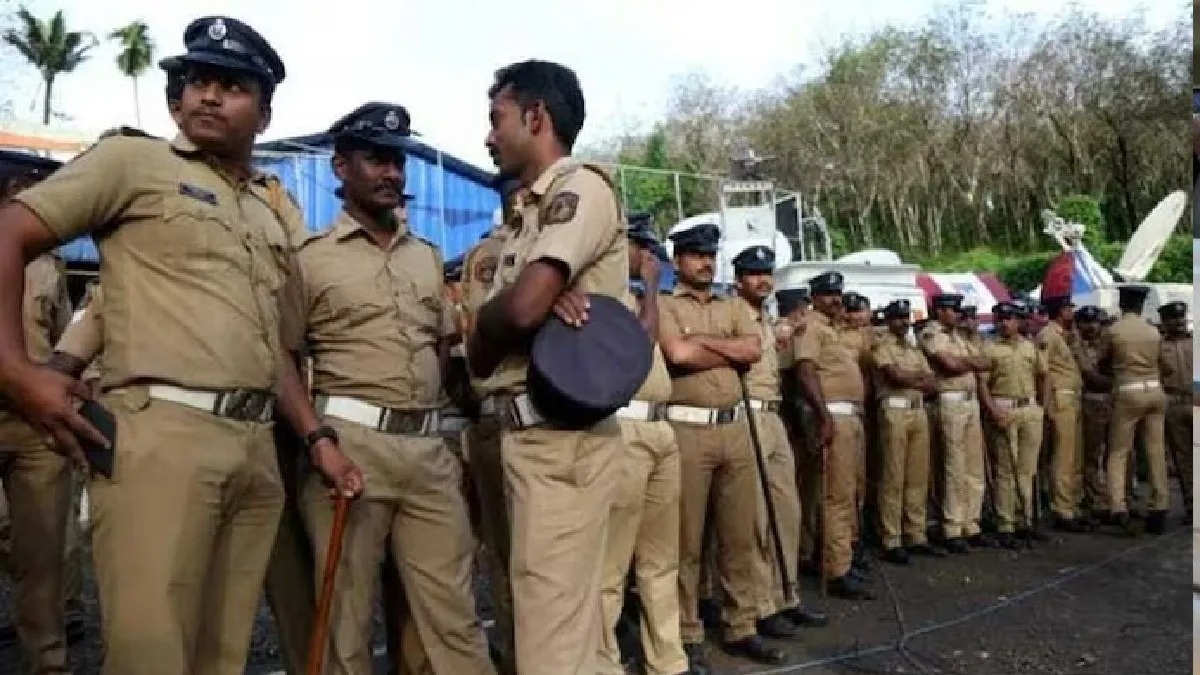
In a heart-wrenching situation that left a community stunned, a mother, broken by repeated failed attempts to rehabilitate her son, made the painful choice of handing him over to the police. Her son, a drug addict for years, had become unmanageable, violent, and a threat not only to himself but to the family’s safety. This incident sheds light on the grim reality of drug addiction in families, especially when every door seems shut, and the only choice left feels like a betrayal of parental love.
But is it betrayal, or is it the last act of love left to save someone from themselves?
Drug addiction isn’t just a personal problem—it becomes a family crisis. Mothers and fathers who once held their babies in loving arms find themselves facing someone they hardly recognize. Their dreams and hopes dissolve into nights filled with fear, anger, and helplessness. This is the reality many live with behind closed doors. When support systems fail, and the addict refuses help, some parents are forced into making the hardest decision of their lives.
This article tells the story of one such mother. Her story is not just about failure; it’s about courage, heartbreak, and the hope that sometimes, even the most painful steps might lead to healing. Let’s walk through her journey.
2. The Heartbreaking Decision by a Mother
For any mother, the thought of turning their child over to law enforcement is unbearable. It goes against every instinct of nurturing, protecting, and standing by their child through every storm. But for this mother, the storm had lasted too long. Her son’s addiction wasn’t a secret anymore; it had taken over their home, finances, peace, and finally, her mental health.
Imagine waking up every day to broken furniture, stolen jewelry, and the fear of being attacked in your own home. That was her reality.
The decision didn’t come overnight. It came after countless sleepless nights, silent tears, and moments where she felt like she had already lost her son to drugs. She had tried everything—doctors, therapists, rehabilitation centers, even religious healers. Nothing worked. Each time he returned from rehab, it was as if he had picked up from where he left off—sometimes worse.
Her neighbors began to whisper. The society started to judge. Friends stopped visiting. And she? She was left to deal with the chaos all alone. In a last-ditch effort, she sat him down and gave him a choice—change, or she would have no option but to hand him over to the authorities.
He didn’t believe her.
So, she walked into the police station, tears in her eyes, holding her son by the arm—not as a mother protecting her child, but as a citizen trying to save him from himself.
3. Understanding the Son’s Drug Addiction
The boy didn’t start off this way. He was a normal, even bright, teenager. A little rebellious maybe, but nothing that worried the family. It started, like it does for many, with peer pressure. A puff here, a pill there—mostly for fun, to feel cool, to escape boredom. Soon, those small experiments turned into a full-blown addiction.
The drugs changed him. He became irritable, secretive, aggressive. His school performance plummeted. He stopped coming home on time, lost weight rapidly, and began asking for money constantly. When denied, he stole. When confronted, he shouted. When ignored, he spiraled further.
His addiction didn’t just take over his body; it took over his soul. He had dreams once—of becoming a musician, of traveling the world. But drugs rob you of your future and replace it with cravings and withdrawals. He began associating only with other addicts. He stopped showing up to family events. He became a shadow in his own house.
For the mother, it wasn’t just about the drugs. It was about watching her son disappear, piece by piece, right in front of her. Addiction didn’t just steal him; it held the entire family hostage.
4. Attempts Made by the Family
Families don't give up easily, especially not mothers. From the moment she suspected her son was in trouble, she began looking for solutions. At first, it was subtle—conversations about life, school, future plans. When those failed, she got more direct. She consulted doctors, tried therapy sessions, and even enrolled him in two different rehabilitation centers over a span of three years.
Each time he came back, there was hope. The first few days would go smoothly. He’d promise change. He’d stay clean. Then slowly, the old patterns would return. A phone call at midnight. A missing wallet. Lying eyes. The hope faded each time.
The family sold jewelry to pay for his treatment. The father borrowed money. The younger siblings grew up in an environment of fear and silence. Friends stopped visiting. The social stigma began to sting.
Still, they hoped.
They tried moving to a different city. Changing schools. New routines. But addiction travels with the addict. Wherever he went, he found his way back to the habit. The final blow came when he became physically violent with his mother during a withdrawal episode.
That day, she knew something had to change.
Read More: Union Cabinet resolves: 'Seva Teerth' will be a centre of empowerment, not a display of power
--Advertisement--

 Share
Share



